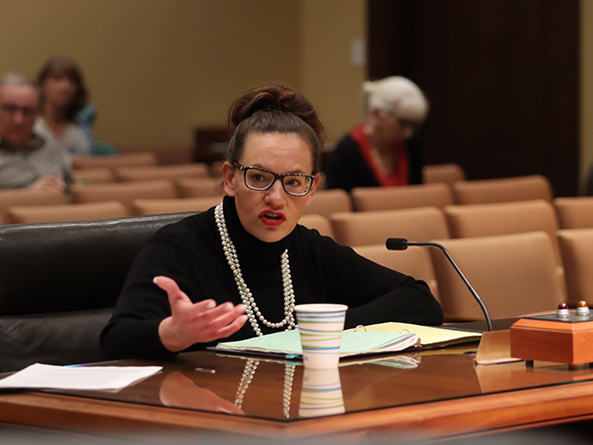State child tax credit proposed
Nebraska families could receive a state tax credit of $1,000 per child under a bill heard Feb. 8 by the Revenue Committee.

Under LB294, introduced by Lincoln Sen. Danielle Conrad, the refundable credit would be available for taxpayers with a child who is under 18 at the end of the taxable year, is claimed as a dependent on the individual’s federal tax return and has been issued a Social Security number or taxpayer identification number.
Conrad said the credit would help low- and middle-income Nebraska families cover the cost of raising children during a time of high inflation. As introduced, she said, LB294 would benefit approximately 81 percent of Nebraska children.
“Given our state’s healthy fiscal condition,” Conrad said, “I think the time is right to enact a policy that provides needed support to hundreds of thousands of children and Nebraska residents.”
Under LB294, taxpayers who are married filing jointly with a federal adjusted gross income of $110,000 or less would receive $1,000 per child. Individuals who file as head of household and earn $92,500 or less and individuals with any other filing status who earn $75,000 or less also would qualify for the full credit.
Depending on filing status, the credit amount would be reduced by 5 percent for each $2,000, $1,500 or $1,000 by which the taxpayer’s income exceeds those thresholds.
The credit amounts, thresholds and increments would be adjusted for inflation each year.
LB294 would require the state Department of Revenue to submit an annual report to the Legislature that includes the number of taxpayers who claimed the credit, the total amount of credits claimed and other information.
The department estimates that the bill would reduce state general fund revenue by $514 million in fiscal year 2023-24 and $373 million in FY2024-25.
Diane Amdor testified in support of LB294 on behalf of Nebraska Appleseed. She said the state credit is modeled on the expanded federal child tax credit that, in conjunction with other measures, cut child poverty in the U.S. nearly in half from 2020 to 2021.
Because the credit is not tied to a specific purpose, Amdor said, it would give parents and guardians flexibility to spend it on what they choose, whether that is child care or necessities such as food and clothing.
“There’s no better way to invest the current revenue surplus than to give these funds back to Nebraska’s children,” she said.
Cindy Meyer of Omaha also testified in support. She said the expanded federal child tax credit helped her pay for unanticipated school supplies for her two children.
Garret Swanson testified in support of the bill on behalf of the Holland Children’s Movement, saying the expanded federal child tax credit had a positive effect on children’s health and education.
“By providing families with more financial stability and resources,” he said, “the credit helped improve children’s access to healthy food, stable housing, quality child care and other essentials that are important for a child’s development.”
Now that the expansion has ended, Swanson said, the Legislature could support children in poverty by creating a state-level credit.
Representing the Nebraska Catholic Conference, Tom Venzor also testified in support of the bill. As lawmakers debate a proposal to further restrict abortion in Nebraska this year, he said, they also should consider measures like LB294 that would offer support to families that “say ‘yes’ to life.”
No one testified in opposition to the bill and the committee took no immediate action on it.


